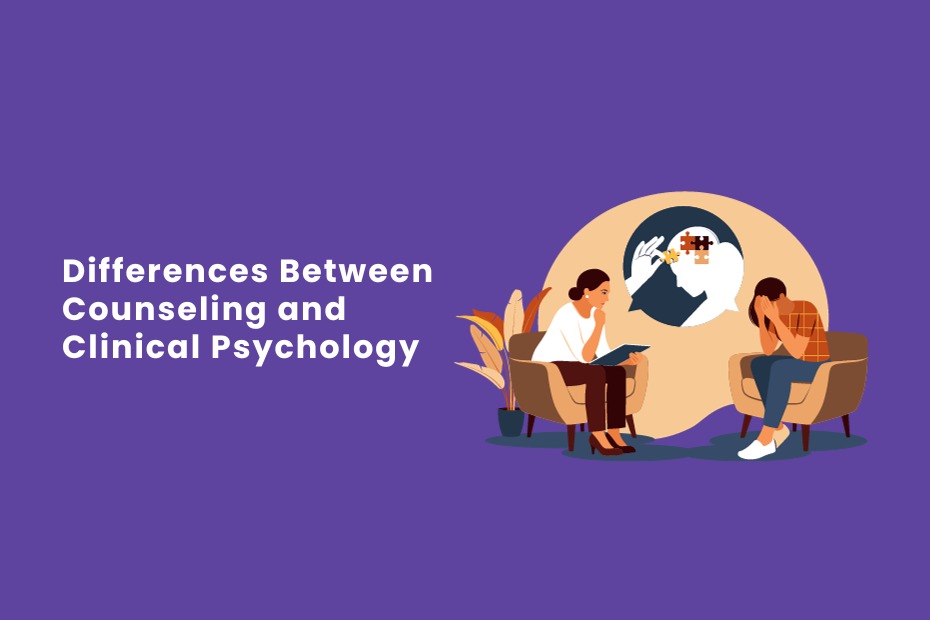Understanding human behaviour, emotions, and mental health is generally associated with clinical and counselling psychology disciplines. Although there are several parallels between the two sports, their practice, training, and concentration is quite different. We’ll examine the differences between clinical psychology and counseling in this blog, highlighting the distinct functions each performs in mental health. We’ll also discuss the applicability of Health And Safety Online Course for mental health professionals and answer the question What is Counselling Psychology.
Table of contents
- What is Counseling Psychology?
- What is Clinical Psychology?
- Differences Between Counseling and Clinical Psychology
- The Relevance of a Health and Safety Online Course
- Conclusion
What is Counseling Psychology?
The primary goal of counselling psychology, a subspecialty of psychology, is to assist people in overcoming emotional, social, professional, and personal obstacles. Counsellors help clients with stress, anxiety, depression, marital issues, work decisions, and personal growth.
Key Aspects of Counseling Psychology:
- Counsellors provide clients with a secure area to communicate their thoughts and worries and emotional support.
- The purpose of counselling is to assist clients in identifying issues, establishing objectives, and creating workable plans for handling and overcoming obstacles.
- Counselling is often client-centred, which means that the therapist adjusts the strategy to meet the needs and objectives of each unique client.
- Short-term treatments are the main emphasis of counselling since they assist clients in dealing with particular problems and achieving quick gains.
- The focus of counselling psychology is often on a client’s assets and strengths, enabling them to build upon their current capabilities to overcome obstacles.
What is Clinical Psychology?
Contrarily, clinical psychology is more expansive and includes diagnosing, evaluating, and treating people with various mental health illnesses. Working with patients who suffer from serious mental diseases like schizophrenia, bipolar disorder, or major depressive disorder is common for clinical psychologists.
Key Aspects of Clinical Psychology:
- Clinical psychologists are qualified to identify mental health issues and provide empirically supported therapies, such as medication and psychotherapy, in certain situations.
- To identify the root causes of psychological disorders, they carry out thorough examinations, often including psychological testing and assessment.
- Counselling and treatment in clinical psychology are often longer-term since patients with severe mental health disorders may need continuous care.
- Individuals with severe mental health problems and complicated challenges, including those that could need hospitalisation or intense therapy, can be effectively assisted by clinical psychologists.
- Clinical psychologists may work in academic or medical environments to create novel therapies and interventions for mental health illnesses. They also often do research.
Differences Between Counseling and Clinical Psychology
Here are the major differences you can observe between Counseling and Clinical Psychology:
- Range of Application: Addresses a wide spectrum of emotional and life transition concerns; often offers brief, goal-oriented treatment. Clinical psychology is primarily concerned with diagnosing and treating patients with complex psychological problems and more severe mental health issues.
- Duration of Treatment: Frequently entails brief treatment sessions to assist clients in addressing pressing issues and creating coping mechanisms. Involves longer-term care since people with serious mental health issues could need continuous assistance and monitoring.
- Client Population: Psychology counselling usually works with people dealing with everyday life issues, including marital issues, stress at work, or personal development objectives. Working with patients who have been diagnosed with severe mental illnesses, such as schizophrenia, bipolar disorder, or profound depression, is the focus of clinical psychology.
- Treatment Approaches: A client-centered, strengths-based approach is often used in counselling psychology, emphasising assisting clients in using their resources and coming up with solutions to their issues. Clinical psychology treats complicated mental health concerns using a variety of treatment modalities, such as cognitive-behavioral therapy, psychopharmacology, and psychotherapy.
- Setting: Counselling psychology professionals may be found in various environments, such as community centres, private practices, and educational institutions. Clinical psychology field of study may be found in hospitals, clinics, mental health facilities, and research institutes.
The Relevance of a Health and Safety Online Course
The importance of an online course on health and safety in the context of mental health professions such as clinical psychology and counselling cannot be overstated. The information and abilities covered in these courses are crucial for understanding risk assessment, occupational safety, and regulatory compliance. These courses may improve the general safety and well-being of counselling and clinical psychology professionals, even if they are not specifically related to these areas.
It is critical to safeguard clients’ and professionals’ safety in mental health and healthcare environments. By enrolling in an online course on health and safety, mental health practitioners may acquire the skills and information required to provide safe and secure spaces for counselling and treatment.
Conclusion
Within the subject of mental health, counselling psychology and clinical psychology are two separate but related disciplines. Clinical psychology specialises in diagnosing and treating serious mental health issues, whereas counselling psychology focuses mostly on helping people face daily difficulties and personal development. The various demands of customers seeking psychological care are reflected in the variations between both professions, which are essential to enhance an individual’s mental health. Choosing the correct route and giving people in need the greatest treatment possible depends on your comprehension of these differences, regardless of whether you want to work as a clinical psychologist or counsellor.
